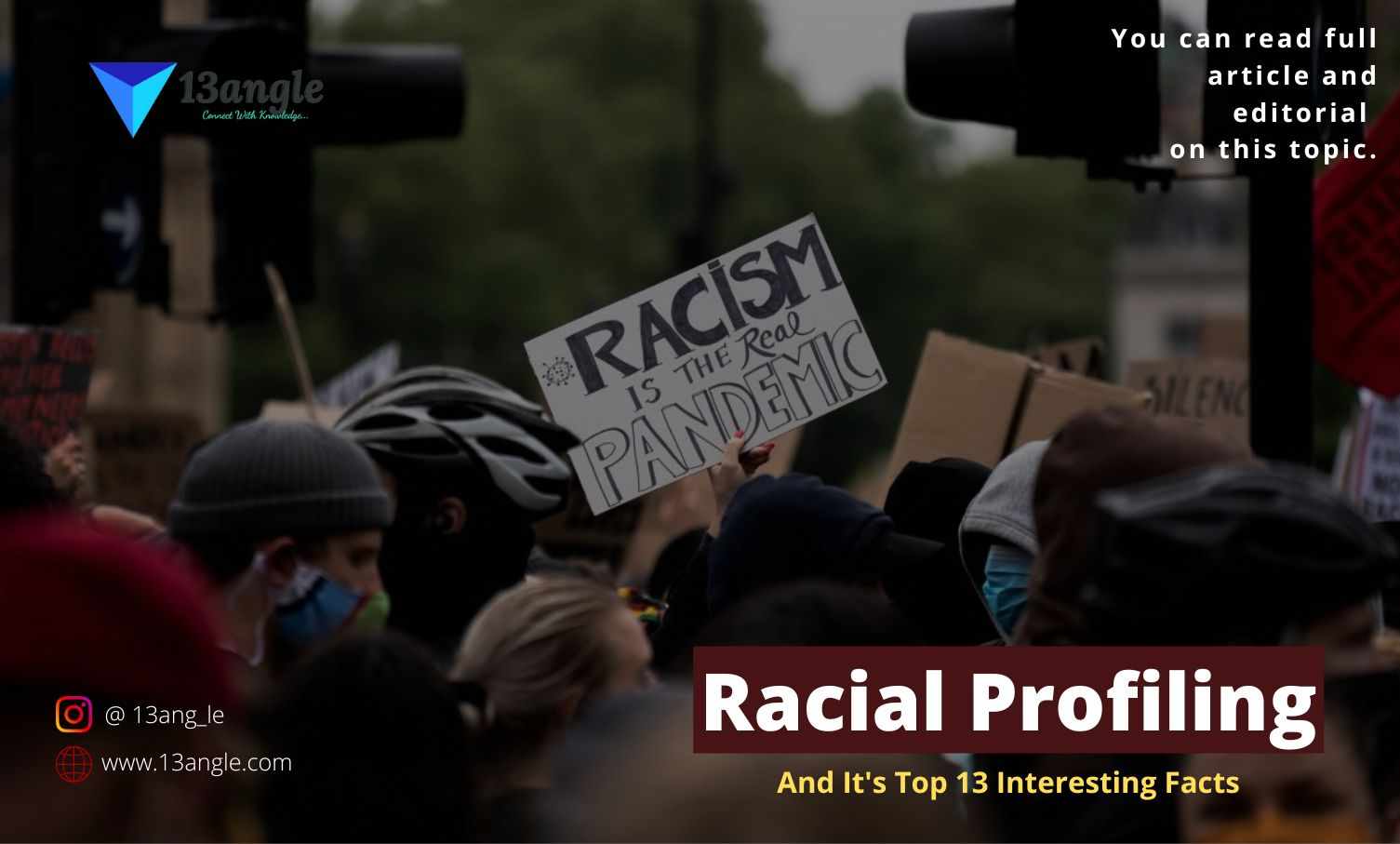- Umang Sagar
- Recent article, Social Issue
Racial Profiling- The Undivided Delinquency
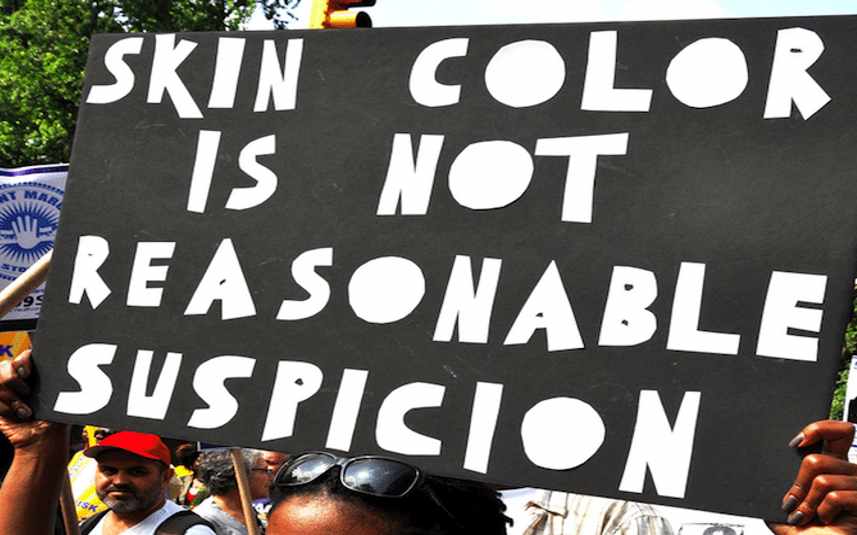
Introduction
Not only in India but also in many other countries, racial profiling is a long-standing practice. The word refers to the government’s suspicion of an individual for any crime based on their caste, religion, race, or place of origin. When it comes to picturing diversity, India is a great example, from cuisines to arts, religion to castes. It is today because of the country’s vibrant population; yet, high levels of crime have caused the country to suffer a substantial setback.
Racist abuse, hate crimes, mob lynchings, and intolerance are on the rise and are fueled by factors such as ethnic, social, caste, and gender identity. Not only do residents play a part in inciting racist discrimination and concealing up hate crimes, but so do those who have been given the task of enforcing the law. Racial profiling is not only a problem in India; it is also a global one.
Root Cause Of Racial Profiling
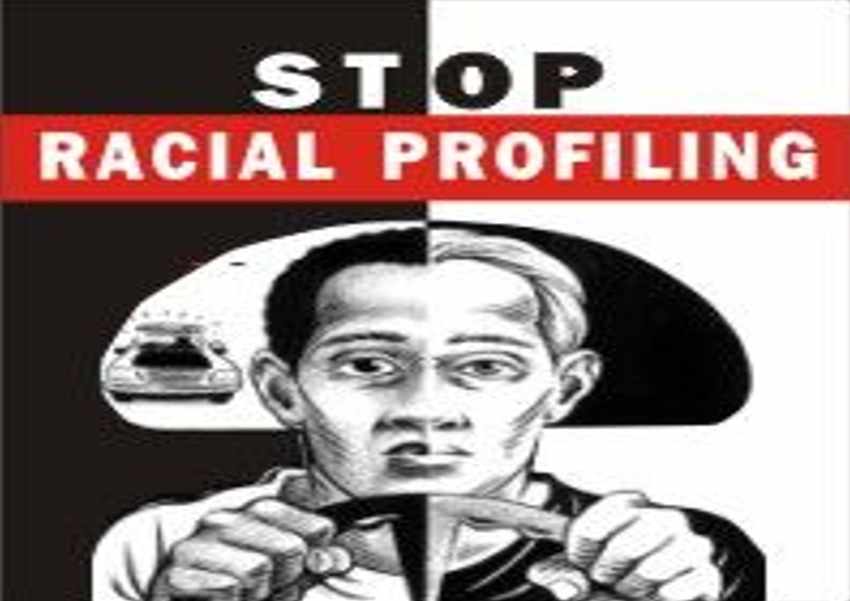
- Racial profiling is the product of one group of society’s unconscious ideas, biases, and prejudices toward other groups. Others who are in the majority in a given place at a given moment, exercise lordship over those who are less numerous. Minority groups are frequently subjected to disproportionate surveillance and fining tactics as a result of social and demographic factors such as age, job, and leisure activities. Furthermore, because there is no legislation prohibiting anti-racism, those who perpetrate it face no consequences. There are also a number of other elements that contribute to the establishment of a prejudiced judgment by police officers against the vulnerable group.
Reasons For Police Biasness
- Racial discrimination for the other groups is the product of the latent views, attitudes, and stereotypes of one category in society. All who at a specific time is the largest in a given position exert their control of power over those who are the least numerous. Contra minority group disproportionate surveillance and fining practices are often due to social and demographic factors that include age, employment, and leisure activities. Furthermore, because of the absence of an anti-racism law, the one who commits it has no fear of any sanction. The Indian police trace their roots back to 1843 but fail to come to terms with the age, caste, gender, and religious diversity of India. As a consequence, the disadvantaged community is susceptible to Ethnic Discrimination. The major causes behind racial profiling are as follows: –
Exclusion of Minority Culture- Equality, diversity, and representation of people from various ethnic groups are crucial for the efficiency of law enforcement agencies. Measures like the Diversity and Inclusion Strategy 2016–2026 have been implemented by police forces in nations like Australia and the United States. Scheduled castes, scheduled tribes, and other backward classes defined in the Indian Constitution as separate ethnic groups make up 66.2 percent of the population in India, while they only make up 36.21 percent of the police force. Because these groups are underrepresented in law enforcement, their needs are frequently overlooked.
Lack of training and awareness- The Supreme Court issued recommendations to the police and the Central Government in Tehseen Poonawala v. Union of India. These directions were also included in the legal sensitization. However, the Indian police officer does not receive appropriate training on human rights issues, caste sensitivity, or crime prevention measures. According to the report, only 6.4 percent of the police force has received in-service training in the last five years. In-service training is frequently available for senior officers, but no such training is available for police officers.
Lack of technology- Due to a lack of exposure to electronic technologies, even police turn a deaf ear to incidences of mob lynching or racial profiling done by the community on underprivileged minorities. As a result, they don’t report the accident to the police department, and they don’t receive manpower to supervise provocation operations. According to the report, 70 police stations lack access to electronic networks, 224 police stations lack access to telephones, and 24 police departments lack access to both the internet and telephones.
Political Party and their Pressurizing Role- The hindrance created in the inquiry by the political forces just renders the police a passive witness to the commission of a crime. While the police are not personally implicated in any cases of persecution of religious and ethnic minority communities, their non-interference gives them the justification for aggressive racial discrimination of citizens taking the law into their own. In Prakash Singh v. Union of India, it was asserted that those having clout can get away from the clutches of the justice system even with blatant violation of law which results in direct violations of the rights of citizens belonging to minority ethnic groups and those who are economically inferior in the form of unauthorized detentions, torture, harassment, fabrication of evidence, malicious prosecutions, etc.
Impact Of Racial Profiling
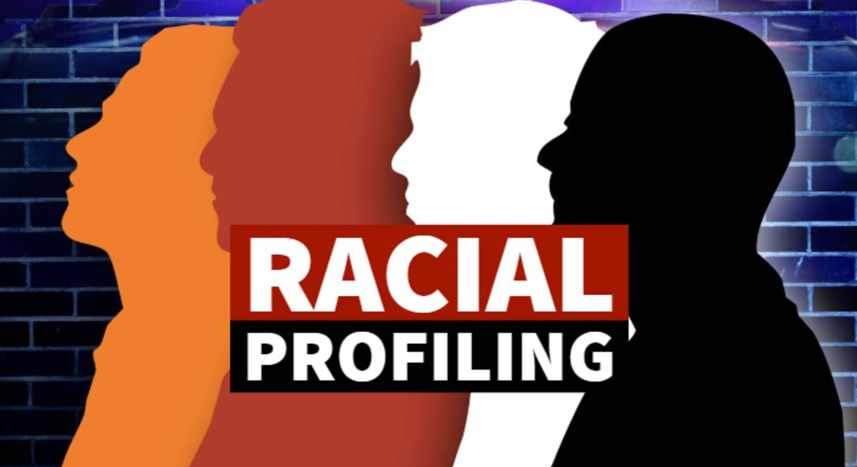
Every democratic country’s citizens have faith in its institutions and structures, such as social justice, law enforcement, and education, and this faith is the bedrock of government, order, and community harmony. To maximize their efficacy in carrying out their mandate, each of these organizations requires people to work with them in a constructive and productive manner. However, if a group of citizens is labeled a suspect merely because of their fear, it instills distrust in the state and the criminal justice system in their minds, as police officers are the most visible force in the legal system.
It also erodes their trust in the government, leading them to assume that the law only works in the presence of other people. This mistrust stems not only from personal experience with racial profiling but also from a widespread assumption that such profiling occurs. The government’s casual attitude toward addressing and resolving this problem adds fuel to the fire. When an ethnic group is subjected to racist treatment, their sense of belonging to their homeland vanishes. Because of humiliation and brutal treatment, they have lost their sense of self. When the general public rejects them, they either move on or give up on the problem. When a minority group is subjected to racial profiling then the sense of belongingness they have for their country fades away. Due to humiliation and inhumane treatment they forgo their sense of citizenship. Once rejected by the mainstream society they either migrate or subside to the problem.
The incorrect classification of a party or individual as a criminal eliminates their possibilities. Because of their naivety, they are associated with a stereotype. This makes it impossible for them to return to society’s mainstream and sustain their lives. Racial discrimination has not only a psychological but also a physical impact on the sufferer. Mob lynching is on the rise as a result of such racial discrimination. The false categorization of any group or individual as suspect blocks the opportunities for them. A stigma gets attached to them in spite of their innocence. This makes it difficult for them to return to the mainstream of society and sustain their livelihood.
Mob lynching is a hate crime that involves a mob of furious individuals assaulting and lynching an individual or a group of people based on religious views. When the police failed to take action against them, the people took the law into their own hands. In truth, police officers engage in racial profiling and minority intimidation. And this is setting a bad example for society. As a result, racial and ethnic minorities are subjected to physical violence not just as a result of military acts, but also as a result of societal actions.
Racial Profiling In Other Countries

Two different and independent racism studies conducted in recent years surveyed a combined 85,000 people from 61 countries and achieved results that were different from the BCR2020, but parallel to one another.
The first was a Washington Post survey from 2013. The main question posed to each participant was whether they would be comfortable living near neighbors of a different race. The second project was a 2016 survey by Business Tech, which questioned if people had ever witnessed or personally experienced racism.
Though neither study is generally considered definitive on its own, especially given a relatively small sampling of only 61 of the globe’s 200+ countries—when merged, they can give a better impression of the prevalence of racism. In this format, India emerged as the most racist country surveyed, followed by Lebanon, Bahrain, Libya, and Egypt.
Most Racist Countries in the World:
- India
- Lebanon
- Bahrain
- Libya
- Egypt
- Philippines
- Kuwait
- Palestine
- South Africa
- South Korea
Government And The Initiatives To Control Profiling

As recognition of racial profiling has increased, so has the variety of strategies adopted by Governments, law enforcement agencies, and civil society organizations to counter the problem. Such strategies may involve laws and policies that prohibit racial profiling and provide guidance on appropriate conduct by law enforcement officials; systems of data collection and monitoring that track police activity; mechanisms for the internal and external accountability of law enforcement personnel; greater community involvement in the development of law enforcement policies and practices; and improvements to training and recruitment of law enforcement personnel.
External accountability includes having government oversight bodies and civil society groups take an active role in monitoring police activities and publicizing their findings. The media can also play an important role in that regard. In Spain, for example, local civil society groups have been actively involved in monitoring and publishing studies on police stops of members of the public and on patterns of bias.
In response to negative consequences associated with racial profiling, national law enforcement and government bodies have developed laws and policies that prohibit the generalized use of race, ethnicity and other prohibited grounds of discrimination as a basis for suspicion and decision-making in law enforcement actions. In many cases, those laws and policies were developed with the collaboration of local and international civil society actors, as well as international human rights mechanisms. Member States should prohibit the practice of racial profiling and ensure that any strategies targeting law enforcement officers are accompanied by practical guidance on non-discriminatory decision making.
Subjects Of Racial Profiling In India
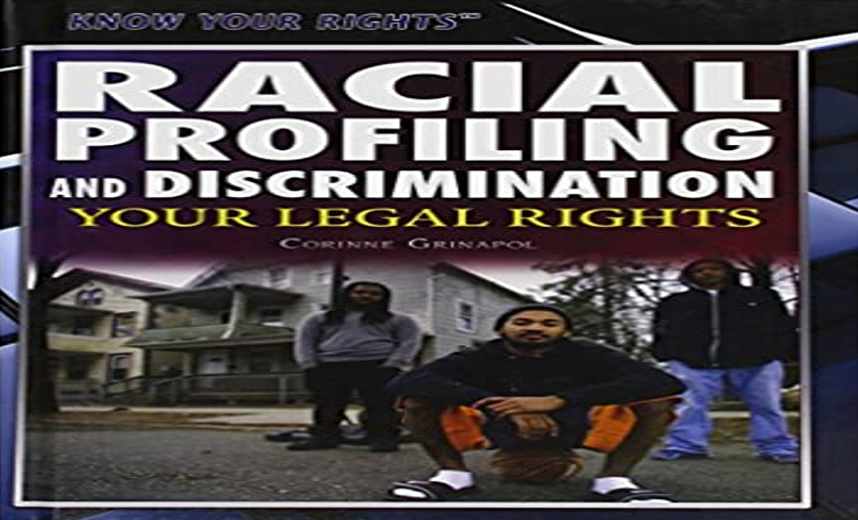
- Stop and Check became the most controversial part of the police-minority, racial group partnership. The police make widespread and unfair use of their authority against a few classes. The groups which mostly become the focus in India are:
Muslims- A report that was produced by police officers investigating shows that half of the police had serious prejudice towards Muslims. In Indian Jails, many Indian Muslims languish because of unfair targeting and fake charges of terror. It is not the responsibility of the police alone to make such arrests and send Muslims behind bars. This action is often assisted by those who remain above police personnel, i.e. government. In fact, the government often also exerts pressure on the police to make these arrests and incarceration happen.
Dalits- Cast violence and minority subjugation in India isn’t recent. A 2000 event in which police turned their backs and fled a Dalit untouchable village in India’s Bihar state when an upper-caste mob stormed it and murdered thirty-four men, women, and children in the lower caste.
Christians- A spike in mob-lynching cases is the product of such bigotry that leads to prejudice against Muslim or Christian minorities that eventually leads to hate crime. And if the police are not interested in this, they turn deaf ears once they hear this. This can be confirmed by referring to a Christian in Jharkhand‘s matter of mob-lynching. A forensic investigation has found that the murder may have been as much a product of the involvement of the officers as the angry crowd had.
Migrants- At times crossing their own state boundary in search of a better life and seeking livelihood makes the citizen fall into the trap of racial profiling. They found themselves cast as a threat to security, and their faith and hope had been made with hostility, prejudice, and even violence. Migrants become the target of hatred. The case of the beating and death of a university student from the northeast and the insouciant approach of police in the investigation made the news a national issue.
Violation Of Human Rights Law
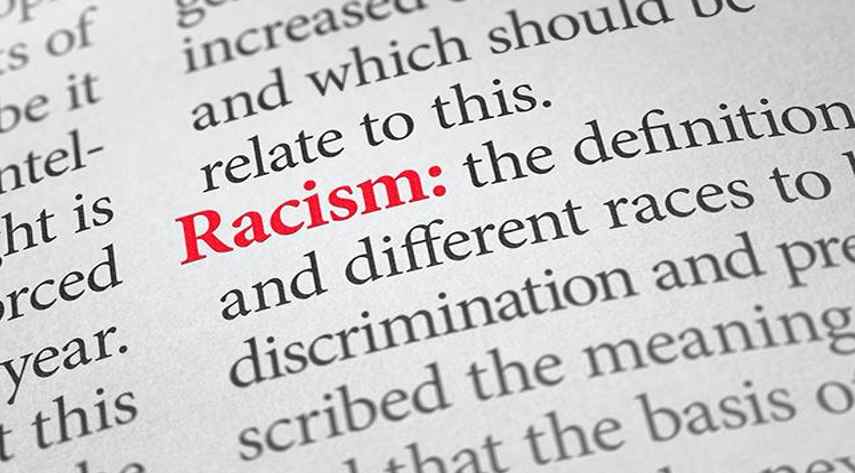
Racial profiling is a violation of human rights law and a violation of India’s constitution. Police policies like these are against the Constitution’s guarantee of equality. This strategy is highly biased and disproportionately affects minorities. Furthermore, discrimination based on race, religion, sex, language, national or social origin, birthplace, and other factors are prohibited under Article 2 of the Universal Declaration of Human Rights. Article 2 of the International Covenant on Civil and Political Rights, Articles 1, 2, and 5 of the International Convention on the Elimination of All Forms of Racial Discrimination, and Article 2 of the Convention on the Rights of the Child all guarantee the same level of protection. Racial profiling is a kind of discrimination that violates these laws.
Everyone is equal in the eyes of the law, and everyone deserves to be treated fairly. There should be no discrimination on the basis of any reason. Article 7 of the Universal Declaration of Human Rights and Article 26 of the International Covenant on Civil and Political Rights both include the same premise. Racial profiling is against the law, and the custodian of the law, the police, is breaking it. Officers have been known to mistakenly label innocent people as criminals based on a single suspicion based solely on their race or ethnicity.
Articles 14, 19, and 21 of the Constitution guarantee the right to privacy. This right is frequently violated as a result of police officers’ arbitrary exercise of power when conducting searches and detentions of suspects. The right to life enshrined in Article 21 of the Indian Constitution, as stated in Maneka Gandhi v. Union of India, is not only a physical right but also encompasses the right to live with human dignity. Those who are subjected to such behavior describe it as humiliating, embarrassing, and even traumatizing. Other rights, such as the rights to life, liberty, and security; freedom of movement; protection against arbitrary arrest and other intrusions; effective redress; and protection of the best interests of the child, are all harmed by racial profiling. Although international human rights treaties do not specifically include racial or ethnic profiling, racial profiling has been discussed as a breach of international human rights law by numerous international human rights mechanisms. The Human Rights Council, for example, held a discussion on racial profiling and incitement to hatred, particularly in the context of migration. Such measures demonstrate that racial profiling has no place in the International Regime.
Conclusion
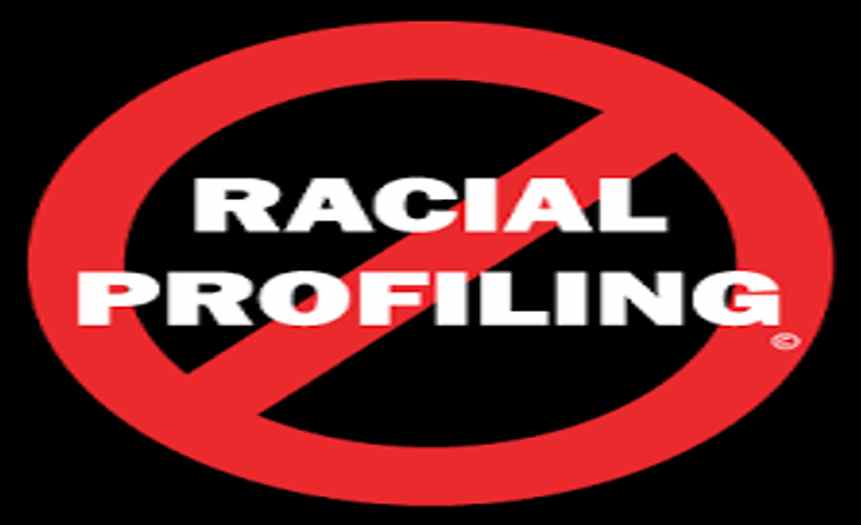
To summarize, while an ethnic or religious minority group’s legal standing has grown and numerous regulations have been created to defend their rights, racial harassment events are reducing minorities’ dignity to mud. This prejudice is unethical and has a negative influence on the psyche of vulnerable people. It creates a sense of distrust in the system, as well as a sense of isolation. Not only has that, but such an act frequently had a negative impact on people’s intellectual, social, and physical well-being. When it comes to racial prejudice, the dominant party continues to perpetrate hate crimes against minorities because they are unafraid of the law.
Racial profiling also jeopardizes national security and degrades human dignity. These actions are, in reality, incompatible with the civil rights framework. It deprives those who are affected of their dignity, privacy, and equal legal protection. Prejudice based on ethnicity, religion, class, creed, or color results from the arbitrary exercise of authority paired with malpractice. Both of these violations are in violation of the Legislative Clause as well as the Human Rights Concept.
Different religions and ethnic groups are pitted against each other under the banner of faith. In these circumstances, police racial discrimination exacerbates a climate of suspicion among the victims and those associated with them. The police are responsible for maintaining peace and order as well as ensuring that all laws are followed. Police officers must carry out their duties impartially and without discrimination based on race or ethnicity. Officers must be committed to following the regulations. We must understand that it is their responsibility, not just a formality, to devote them to the rule of law.
Top 13 Interesting Facts About Racial Profiling
Racial Profiling happens when discrimination is conducted on the basis of biological attributes.
Citizens from North-Eastern states are subjected to more discrimination than any other part of our country.
Any forms of discrimination on the basis of race, ethnicity, color, religion, sex, etc. are all prohibited through Article 15 of the Indian Constitution.
The earliest form of discrimination has been mentioned under Rigveda were the top 2 communities (Brahmins & Kshatriyas) used to look down upon people from the bottom 2 communities (Vaishyas & Sudhras).
In 1935, the British introduced 400 Indian groups which were known as the untouchable and the impure due to their tone of skin color. This further led to the feeling of racial profiling being promoted.
Our history and the Freedom fighters like Mahatma Gandhi, BR Ambedkar have shown fighting deeply for the eradication of untouchability. The untouchables formed a group and referred to themselves as the Dalits.
Untouchability as a practice has been banned by the Indian Constitution through Article 17.
During the times of the British, the Dalits and Shudras were denied access to drinking water, entering temples, educational institutions, and employment for being dark-complexioned.
Mahatma Gandhi in lieu of fighting for the eradication of discrimination nicknamed these people as “Harijans” or Representatives of God.
Racism and colorism are very closely related to each other. People with a lighter skin tone were considered as a rich upper-caste while people with a dusky skin tone are considered as poor of a lower caste.
Today with growing legislation across the globe, the new mode of racial profiling is social media applications. Social media and advertising agencies contribute to a great extent in favoring the notion of colorism.
India’s National Crime Records Bureau released a report stating that on average every day 2 Dalits are murdered; 3 Dalit women are raped and 2 Dalits are assaulted despite Central Government’s unprecedented efforts to help curb the menace.
Article 46 of the Indian Constitution ensures the protection of the weaker sections of the people, the Scheduled Castes and the Scheduled Tribes, and promotes provisions with special care to meet their economic and educational interests.
Some FAQs Or Also Ask Question
How does racial profiling affect society?
Racial Profiling is injurious to self-repute, compromises people’s ability to think, reason and take justified decisions, results in community division and heightens community fear.
What is Racial Profiling Education?
The education is important to realize the growing tensions between racial and non-racial communities and to ensure equal opportunities to all, regardless of the skin colour a person possesses.
Is racial profiling useful?
Absolutely not. Racial Profiling other than being a crime itself, is deeply injurious to an individual’s loss of dignity, self-confidence and the society’s progressive demands.
Is profiling legal?
No, it is not. Racial Profiling goes against Article 14 (Right to Equality), Article 15 (Right Against Discrimination) and Article 16 (Right to Equal Opportunities in matters of public employment).
What is the difference between a racial profile and a criminal profile?
Racial profiling is based on stereotypical assumptions because of one’s race, colour, ethnicity. Criminal profiling, on the other hand, relies on actual behaviour or on information about suspected activity by someone who meets the description of a specific individual.
Is racial profiling acceptable in law enforcement?
Racial Profiling in law enforcements is the worst form of danger to the humankind. Law enforcements are expected to uphold the principles of law regardless of any form of discrimination and racial profiling hits this very principle directly.



